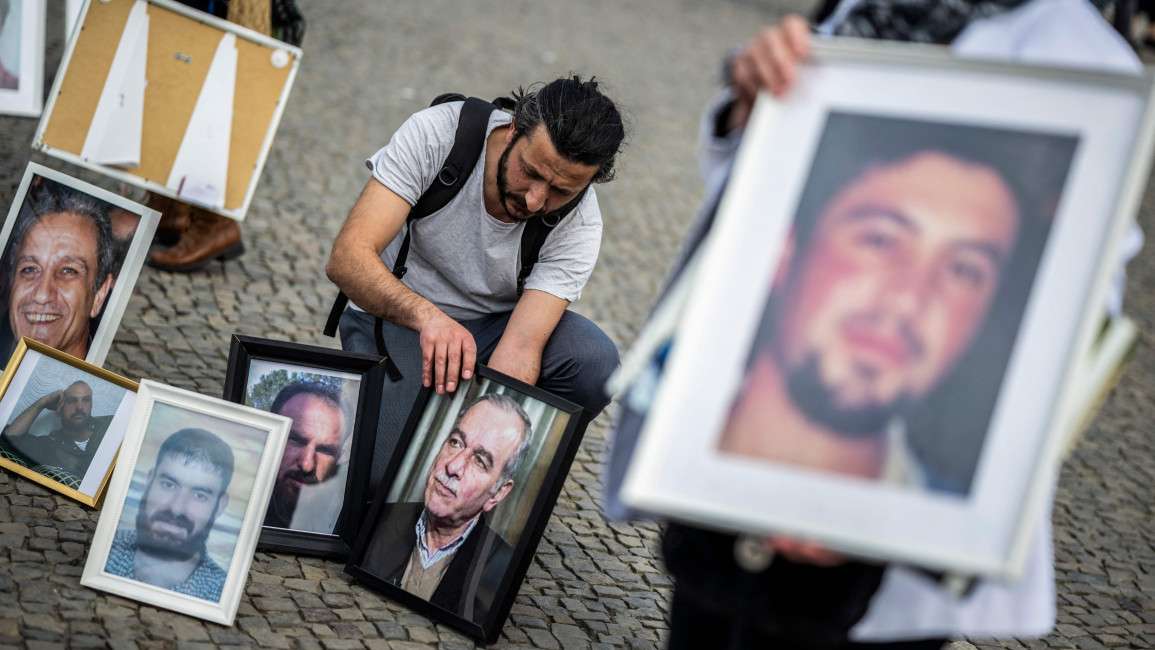Rights groups hope proposed UN body will shed light on Syria's thousands of disappeared
Syrian human rights groups have welcomed a call from the United Nations for a new institution to be established to help find the more than 100,000 people missing and disappeared by the regime and other armed groups.
A report by the UN Secretary-General said that new measures urgently needed to be taken as virtually no progress had been made on finding missing persons in Syria since war broke out in 2011 after the regime's brutal suppression of peaceful protests.
The regime is thought to be responsible for the detention of over 100,000 Syrians, many of them for taking part in protests or suspected of activism.
"Throughout the consultations, most actors and several member states agreed that a new international body specifically dedicated to missing persons in the Syrian Arab Republic should be established in parallel with immediate measures taken within existing mechanisms and processes," the report said.
"The added value of a stand-alone entity focused entirely on clarifying the fate and whereabouts of missing persons related to the Syrian Arab Republic and on adequately supporting families is clear.
"It would fill the gaps identified throughout the study and galvanise efforts from relevant actors to provide a fuller picture of the fate and whereabouts of those who are missing and more effective support to victims, survivors and their families."
|
The recommendation was met positively by rights groups, including families of detainees, who have been calling for the establishment of such a body for years.
"The creation of an independent body dedicated to establishing the fate of the disappeared would be a momentous breakthrough for justice," said Laila Kiki, Executive Director of The Syria Campaign.
"After 11 years of campaigning and living with agonising uncertainty, it would also offer the first glimmer of hope for the families of tens of thousands of people forcibly disappeared in Syria who continue to live in limbo, waiting for answers," Kiki said.
More than 110,000 people are currently missing in Syria with more than 85 percent of them forcibly-disappeared by the regime of President Bashar al-Assad, according to the Syrian Network for Human Rights (SNHR).
Most of the families have not heard from detained loved ones since the start of the uprising in 2011.
Though the regime was notorious for making detainees disappear well before the uprising began, it vastly escalated its policy of detention after the 2011 protests with tens of thousands of Syrians, including women, children, and the elderly imprisoned and tortured.
With still no news about the missing detainees, human rights groups banded together in 2019 to establish the Truth and Justice Charter, demanding the establishment of an independent body to find missing Syrians.
The charter member groups said in a statement: "The continuation of the status quo and ignoring the recommendation of the Secretary-General regarding the creation of a new and special institution to address the crisis of the missing in Syria would greatly undermine the rights of the victims, including the families. The signatories cannot accept anything less than what is recommended by the report."
Syrian victims' groups said in a joint statement that they welcomed the report's recommendations.
"The victims and families' associations demand that member states show their full support for the Secretary-General’s report and take all the necessary steps to realise its recommendations," they said.
Activists and rights groups have highlighted the harrowing conditions inside Assad's prisons, where torture - often fatal - is commonplace, and hunger and disease are widespread.



